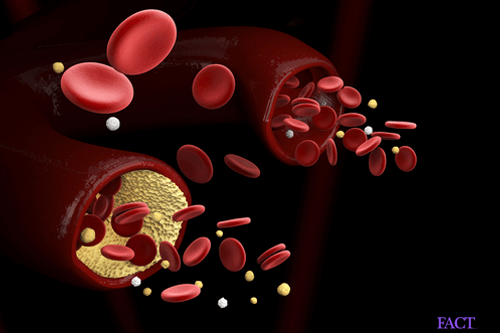Are Serum Ferritin Levels a Reliable Cancer Biomarker? First, let’s look at Ferritin – Ferritin is a blood protein that contains iron.
Ferritin isn’t the same thing as iron in your body. Instead, ferritin is a protein that stores iron, releasing it when your body needs it. Ferritin usually lives in your body’s cells, with very little actually circulating in your blood.
The greatest concentrations of ferritin are typically in the cells of the liver (known as hepatocytes) and immune system (known as reticuloendothelial cells).
Your body relies on iron in red blood cells to carry oxygen to all its cells.
Without enough iron, your red blood cells will be unable to supply enough oxygen. However, too much iron isn’t good for your body either. Both high and low iron levels may indicate a serious underlying problem.
A ferritin test helps your doctor understand how much iron your body stores. If a ferritin test reveals that your blood ferritin level is lower than normal, it indicates your body’s iron stores are low and you have iron deficiency. As a result, you could be anemic.
Higher than normal ferritin levels can mean you have too much iron in your body. Conditions that cause increased iron levels include liver disease, alcohol abuse, and hemochromatosis, a disorder that can lead to cirrhosis, heart disease, and diabetes.
Why Might I Need a Ferritin Blood Test?
Doctors order a ferritin test if other blood tests point to possible anemia, which can lead to a lack of oxygen in your blood. It can show if there is too much or too little iron in your body. Doctors can also use it to diagnose restless legs syndrome and Still’s disease in adults (a rare type of arthritis with fever and rash). 
Low iron could be the cause if you:
Often feel dizzy, weak, and tired
Have headaches
Look pale
Are short of breath
Have a rapid heartbeat
You may also have strange cravings for licorice, chalk, dirt, or clay. You may feel a burning sensation on your tongue.
If left unchecked, low levels of iron can cause heart failure (when your heart doesn’t pump blood to your body as well as it should). It can also cause these symptoms:
Chest pain
Leg pain
Ringing in the ears, or tinnitus
A ferritin blood test can also help your doctor figure out whether your body is storing too much iron. High levels may point to alcohol abuse, infection, liver disease, rheumatoid arthritis, overactive thyroid, or some types of cancer.
Symptoms of high iron levels vary and can include:
Exhaustion
Heart problems
Joint pain
Low sex drive
Loss of body hair
Stomach pain
Weight loss
Abdominal pain
Lack of energy
Ferritin Blood Test Results
According to the Mayo Clinic Normal ferritin levels range from:
20 to 500 nanograms per milliliter in men
20 to 200 nanograms per milliliter in women
Causes of Low Ferritin Blood Levels
If your results are lower than normal, you might have iron deficiency and possibly anemia. Your doctor may prescribe iron supplements or order more blood tests to figure out the cause.
Causes of High Ferritin Blood Levels
Higher than normal results mean your body is storing too much iron. Your doctor may adjust your diet or supplements. Since high iron is a symptom of other medical issues, you may have more tests to pinpoint the cause, such as:
Hemochromatosis
Porphyria
Rheumatoid arthritis or another ongoing inflammatory problem
Liver disease
Hyperthyroidism
Leukemia
Hodgkin’s lymphoma
You’ve had several blood transfusions
Alcohol abuse
You’ve taken too many iron supplements
Are Serum Ferritin Levels a Reliable Cancer Biomarker?
Although serum ferritin (SF) has been shown in several studies to be a potential cancer biomarker, the results are inconsistent. Herein, a systematic review was performed to investigate the clinical SF levels in different types of tumors in order to verify the role of SF levels as a biomarker for cancer diagnosis. The search was performed using the PubMed/ Medline, Cochrane Library, and Scopus databases.
Observational studies comparing SF levels between healthy adults and patients with cancer were included. The meta-analysis was carried out according to the inverse variance and random effects model. The standardized mean differences (SMDs) were assessed at 95% confidence intervals (Cis). we found that SF was higher in patients with cancer (SMD 3.07; Ci 1.96,4.17), especially for head and neck cancer (SMD 3.88; Ci 0.42,7.34), lung cancer (SMD 1.72; Ci 0.67,2.78), pancreatic cancer (SMD 6.79; Ci 5.66,7.91), and renal cell carcinoma (SMD 1.77; Ci 0.48,3.05).
Moreover, in the advanced stages (Stages iii and iv), ferritin levels were higher than in healthy adults (SMD 4.89; Ci 2.72,7.06, and SMD 8.40; Ci 6.99,9.82, respectively). SF acts as a biomarker for pancreatic cancer, renal cell carcinoma, lung cancer, and head and neck cancer and is a sensitive biomarker for the detection of advanced stages of tumors.
To request an appointment and learn more, please click HERE to schedule an appointment.
Curated Content References:
Are Serum Ferritin Levels a Reliable Cancer Biomarker?
A Systematic Review and Meta-Analysis. Nutrition and Cancer. Sep 2021
Images: Fact Dr








